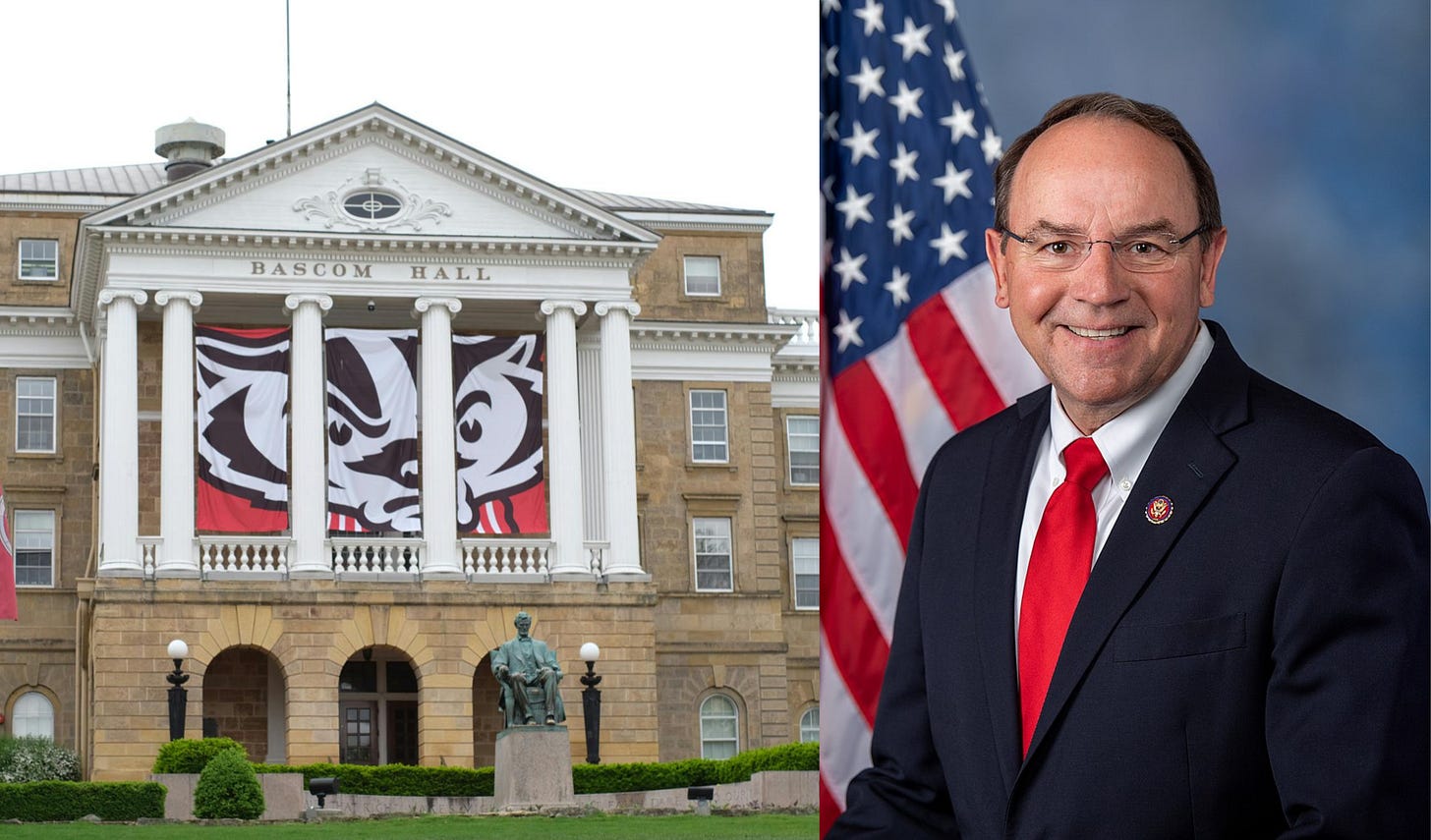Rep. Tiffany's Bill to Limit H1B Visas in Higher Ed Puts Wisconsin First
American universities should prioritize training and hiring American students and faculty
The opinions expressed in this article are solely those of the author. If you wish to share your views on an issue, send a pitch to madisonfederalist@gmail.com!
What happens when the “Wisconsin Idea” crumbles upon itself, serving the interests of bureaucrats and non-citizens over Wisconsinites?
According to a recent report from Wisconsin Right Now, the UW System pays nearly $43 million annually to 495 employees on H1B visas. At the same time, it has raised tuition for students. This is possible because universities are currently exempt from federal H1B visa limits, allowing them to hire endless foreign workers.
It is unjust that our public institutions for higher education are exempt from federal visa restrictions, especially as our people and corporations continue to suffer from the outsourcing of labor.
This summer, Congressman Tom Tiffany (WI-07) introduced the Colleges for the American People Act, designed to eliminate exemptions and loopholes surrounding H1B visa employment caps in higher education. The CAP Act would require all universities to compete for H1B visas under the standard federal limit.
Rep. Tiffany told The Madison Federalist, “Our kids deserve an education that prepares them to succeed in their careers. Unfortunately, our university system has drifted from this focus. We need to return to ensuring that students graduate with the skills and knowledge to land great jobs.” In sum, Tiffany’s view provides a realistic alternative for the UW System’s future, creating a unique pipeline of education, trade, and research that will help Wisconsinites prosper.
As a spokesperson for Tiffany emphasized, “Wisconsin’s public universities were established to serve Wisconsin families, not to hire an unlimited number of foreign workers on the taxpayers’ dime. Universities and immigration lawyers often claim there aren’t enough Americans to fill these jobs. But isn’t that, in itself, a serious indictment of our education system? Why aren’t our universities preparing American students to meet the demands of today’s workforce?”
UW system spokesperson Mark Pitsch told The Federalist, “We are like employers all across the country competing for talent, with a small percentage of our workforce – about 1 percent -- employed using these temporary work visas. Critically, these workers help us develop additional talent in Wisconsin at our universities.”
However, the issue surrounding the unlimited number of H1B employees within higher education is that these visas are temporary, with terms ending between three and six years. Although H1B professors and academics do reside in Wisconsin for this period of time, it is unlikely that Wisconsinites will see their taxpayer dollars fully reintegrated into their economy. On the contrary, hiring professors from Wisconsin or neighboring states keeps the outflow of taxpayer dollars at a minimum. Developing talent in Wisconsin should not be for such a limited amount of time.
Through the introduction of the CAP Act, Congressman Tiffany has drawn attention to the unnecessary outsourcing of faculty by the UW System, bringing job opportunities and taxpayer dollars back to Wisconsin’s beautiful college campuses. Wisconsin’s universities must continue to strive for world-class education and job preparation for their in-state students, not relying on foreign-backed tuition and labor to fill their needs.
American universities should prioritize training and hiring American students and faculty. At a time when tuition costs are rising for students, why are taxpayers paying millions of dollars in foreign salaries?




